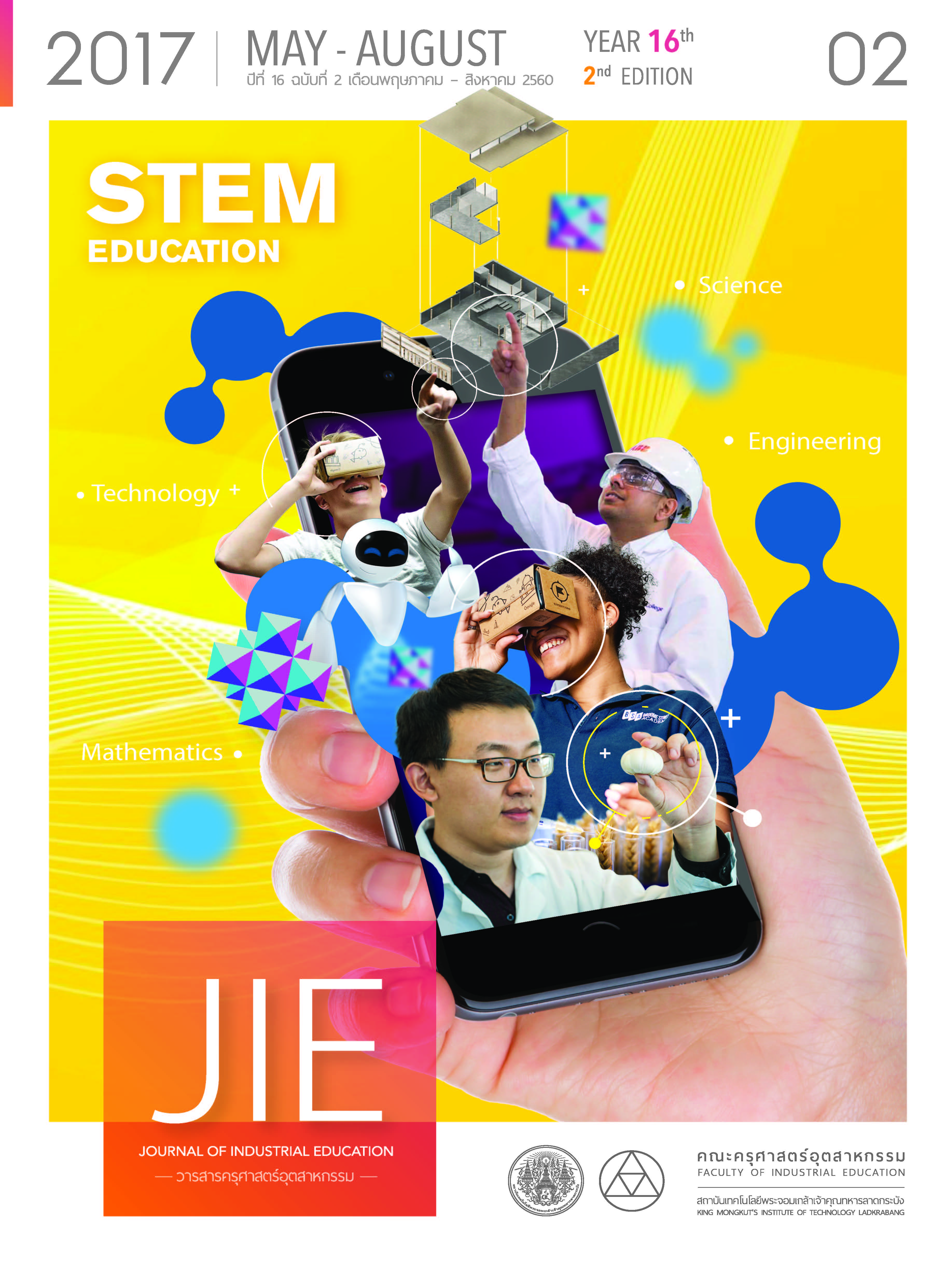A CAUSAL MODEL OF TECHNOLOGICAL LEADERSHIP OF ADMINISTRATORS AND SCHOOL CLIMATE, MEDIATED BY TECHNOLOGY LITERACY AND ACADEMIC OPTIMISM, AFFECTING TEACHING EFFECTIVENESS OF ENGLISH LANGUAGE TEACHERS IN WORLD CLASS STANDARD SCHOOLS
Keywords:
technological leadership, technology literacy, academic optimism, teaching effectiveness of English language teachers, world class standard schoolsAbstract
The objectives of this quantitative research were to: 1) study the level of technological leadership, school climate, technology literacy, academic optimism and teaching effectiveness of English language teachers in world class standard schools; and 2) develop and investigate congruence of a causal model of technological leadership of administrators and school climate, mediated by technology literacy and academic optimism, affecting teaching effectiveness of English language teachers in world class standard schools. A sample of 460 was selected by multistage random sampling technique from foreign language department heads and English teachers of those schools in the 2016 academic year. The research instrument was a questionnaire constructed by the researcher, with the content validity of 0.80-1.00 and the reliability of 0.93-0.95. Structural Equation Modeling (SEM), analyzed using a computer program, was used to test and validate the model.
The findings were as follows. 1) Technological leadership, school climate, technology literacy, academic optimism and teaching effectiveness of English language teachers were at the high level. 2) The developed causal model of technological leadership of administrators and school climate, mediated by technology literacy and academic optimism, affecting teaching effectiveness of English language teachers in world
class standard schools was congruence with empirical data (Chi-square/df=1.73, GFI=0.96, RMR=0.034, RMSEA=0.040). Technological leadership of administrators, technology literacy, and academic optimism had direct influence on teaching effectiveness of English language teachers; while technological leadership of administrators, and school climate had indirect influence on teaching effectiveness of English language teachers.
References
[2] Office of the Education Council. 2016. World Ranking of Thai Education 2015 (IMD2015). Bangkok: Prigwhan Graphic.
[3] National Institute of Educational Testing Service. 2016. O-NET Result of Matthayomsuksa 6 in the 2015 academic year. Retrieved August 25, 2016, from www.onetresult.niets.or.th/AnnouncementWeb/PDF/SummaryONETM6_2558.pdf
[4] Ruennakarn, T. 2016. English Learning Management in World Class Standard Schools. Journal of Education: Faculty of Education Srinakharinwirot University, 17(2), p.40.
[5] Ding, C. and Sherman, H. 2006. Teaching Effectiveness and Student Achievement: Examining the Relationship. Educational Research Quarterly, University of Missouri-St.Louis, 29(4), p.39-49.
[6] Chang, I.-H. 2012. The Effect of Principals’ Technological Leadership on Teachers’ Technological Literacy and Teaching Effectiveness in Taiwanese Elementary Schools. Educational Technology and Society, 15(2), p.328-340.
[7] Betty, T. and Herron, A. 2004. School Climate and Learning. Best Practice Brief, 31, p.1-10.
[8] Beard, K. S. Hoy, W. K. and Hoy, W. A. 2009. Academic Optimism of Individual Teachers: Confirming a New Construct. Columbus, Ohio: The Ohio State University.
[9] ISTE. 2009. International Society for Technology in Education Standards for Administrators. Retrieved August 28, 2016, from https://www.iste.org/standards/standards/standards-for-administrators
[10] UNESCO. 2011. UNESCO ICT competency framework for teachers. France: United Nations Educational, Scientific and Cultural Organization.
[11] Srisa-ard, B. 2014. Basic Research. 9th ed. Bangkok: Suwiriyasan.
[12] McGuigan, L. 2005. The Role of Enabling Bureaucracy and Academic Optimism in Academic Achievement Growth. Doctoral Dissertation, School of The Ohio State University.
[13] Onkaew, S. 2014. Influence of Role and Job Characteristic of Head of Key Learning Area, School Climate on teacher’s Teaching Efficiency in Basic Education School. Doctor of Education (Educational Administration), Kasetsart University.
Downloads
Published
How to Cite
Issue
Section
License
"The opinions and contents including the words in papers are responsibility by the authors."
"ข้อคิดเห็น เนื้อหา รวมทั้งการใช้ภาษาในบทความถือเป็นความรับผิดชอบของผู้เขียน"



